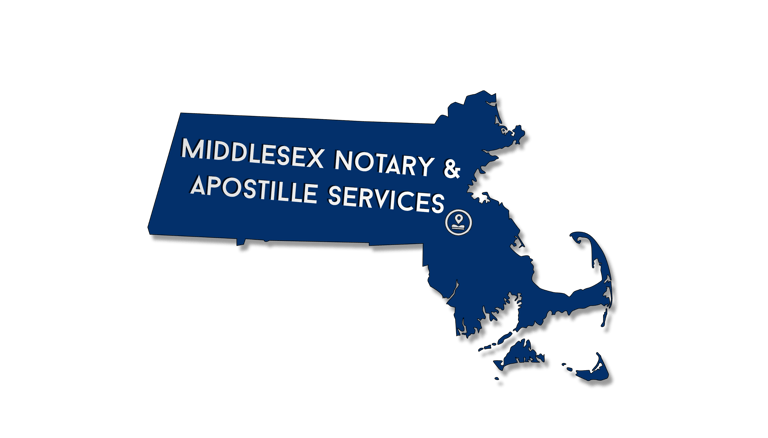Understanding Notary Services for Divorce Documents in Massachusetts
11/22/20257 min read


Introduction to Divorce in Massachusetts
Divorce is a significant legal and emotional process that marks the end of a marital relationship. In Massachusetts, the dissolution of marriage can be initiated through various legal grounds, which are categorized primarily into two types: fault-based and no-fault divorce. Fault-based grounds may include issues such as adultery, desertion, and cruel treatment, while no-fault divorce allows couples to separate without assigning blame, often citing irretrievable breakdown of the marriage as the reason.
The divorce process in this state can take various forms, including contested and uncontested divorce. In an uncontested divorce, both parties agree on the key issues such as property division, alimony, and child custody, allowing the procedure to proceed more swiftly. Conversely, a contested divorce involves disagreements on one or more of these significant matters, leading to a potentially more protracted legal battle. Welcome to the complexities of family law, where each case is unique and often intertwined with emotions that complicate an already intricate process.
Within this framework, proper documentation holds immense importance. The necessity of accurate and legally sound documents cannot be overstated, as they serve as the foundation for the divorce proceedings. Missteps in documentation can lead to delays, increased legal costs, and even unfavorable outcomes for the parties involved. Here, notary services emerge as a pivotal component in ensuring that important divorce documents are properly executed and authenticated. Notaries serve as impartial witnesses to the signing of documents, thereby enhancing their credibility and legality. Throughout the divorce process in Massachusetts, reliance on professional notary services can facilitate smoother transitions, ensuring that both parties can navigate the complexities of divorce with greater ease and assurance.
The Role of Notaries in Legal Documents
Notaries play a crucial role in the execution and validation of legal documents, ensuring the integrity and authenticity of the information contained within those documents. Their primary responsibilities include witnessing the signing of documents, verifying the identities of the signatories, and administering oaths as required. In the context of divorce documents, notaries are particularly important, as the notarization process helps to establish that the parties involved are acting voluntarily and are fully aware of the implications of their actions.
The importance of notarization cannot be overstated, especially in legal matters where the risks for fraud and misrepresentation are significant. Notarized documents carry a certain level of legal weight in court, making them more credible and robust against challenges. This is particularly vital in divorce proceedings where the distribution of assets, child custody, and other sensitive matters may require legally binding agreements. Having a notary public involved ensures that these agreements meet the legal standards and can withstand scrutiny if contested.
Moreover, the presence of a notary serves as a deterrent against potential fraudulent activities. Since notaries are tasked with verifying identities through various forms of identification, they help to mitigate risks associated with forged signatures or the filing of false documents. This layer of protection is vital in divorce cases, as disputes can often arise concerning the authenticity of agreements or consents presented in court.
In conclusion, notaries are essential in the realm of legal documents, providing an invaluable service that safeguards the authenticity and legitimacy of vital agreements. Their involvement not only serves to validate these documents but also helps prevent fraud and ensures that the rights of all parties involved are preserved during legal proceedings, including those concerning divorce in Massachusetts.
Types of Divorce Documents Requiring Notarization
In Massachusetts, several divorce documents necessitate notarization to ensure their legality and bindings. Among the most critical documents is the divorce agreement, which outlines the terms and conditions agreed upon by both parties regarding asset division, child custody, and support obligations. Notarization serves to verify the authenticity of the signatures on the divorce agreement, ensuring that both parties are entering into the agreement willingly and without duress. Lacking proper notarization can result in difficulties in enforcement or the potential for disputes over the validity of the agreement.
Another significant document requiring notarization is the financial affidavit. This document is essential as it discloses the financial circumstances of both spouses, including income, expenses, assets, and liabilities. Notarizing the financial affidavit adds credibility to the information provided, as it confirms that the individuals who signed it were acting in their own capacity and comprehended the contents of the document. Failure to properly notarize a financial affidavit could lead to complications during the divorce proceedings or even claims of fraud if one party believes the other misrepresented their financial status.
Waivers of service are also commonly notarized in divorce cases. This document indicates that one spouse has agreed to waive formal service of divorce papers, acknowledging receipt in a manner that avoids the need for personal delivery. Notarization verifies that the waiver was signed voluntarily, which can be particularly important if there are disputes about whether one spouse was adequately informed of the divorce process. Omitting notarization in this context can result in challenges or delays in the divorce proceedings, underscoring the importance of these formalities in maintaining legal integrity.
Finding a Notary Public in Massachusetts
Locating a reliable notary public in Massachusetts is an essential task for individuals handling divorce documents. Notaries play a critical role in ensuring these legal documents are properly executed. There are several avenues through which individuals can find notary services throughout the state.
First and foremost, many traditional offices, such as law firms and real estate offices, provide notary services. Lawyers often have notaries on staff who are experienced in legal documentation, making them an excellent resource for those completing divorce processes. Furthermore, local government offices, such as town or city clerks, frequently offer notary services as well. It informs clients that official documentation is handled with care and professionalism.
Another common location to find notary services is banks and credit unions. Many financial institutions have notaries available for their customers, often without charge. However, it's advisable to verify the bank's policy regarding notary services, as it may vary from one institution to another. When visiting, it's important to bring the necessary identification and documents that need notarization.
In the digital age, online resources also serve as valuable tools for finding notaries. Websites dedicated to locating notary publics allow users to search by zip code, making it a convenient option. Additionally, mobile notary services have emerged, wherein notaries can come to the client’s location for a fee. This flexibility can be particularly beneficial for those who may have transportation difficulties or require urgent notarization of divorce documents.
When selecting a notary public, consider their qualifications and credentials. Massachusetts notaries must be appointed by the Secretary of the Commonwealth and have undergone background checks, ensuring a level of trustworthiness in their services. Be aware that typical fees for notary services in Massachusetts are regulated; thus, understanding these charges helps prepare individuals for the overall process.
Tips for Preparing Divorce Documents for Notarization
Preparing divorce documents for notarization is a critical step in ensuring a smooth and efficient process. To avoid delays in your divorce proceedings, it is essential to follow some practical guidelines. First and foremost, ensure that all necessary documents are complete and accurately filled out. Common divorce documents include a divorce petition, financial affidavits, and any agreements regarding child custody or distribution of assets. Errors or omissions in these documents can lead to complications during notarization. It may be beneficial to consult with an attorney to confirm that all required paperwork is in order.
Identification is another significant aspect to consider when preparing for notarization. The notary public will require valid identification to verify your identity before witnessing your signature. Acceptable forms of identification typically include a state-issued driver’s license, passport, or other government-issued ID that includes a photo. Ensure that your identification is current; expired IDs may be rejected and could result in delays in your divorce process.
On the day of notarization, it is advisable to arrive at the notary's office with all documents organized and ready for review. Bring multiple copies if necessary, as the notary may require additional copies for their records. It is also important to sign the documents in the presence of the notary; do not sign beforehand, as this action is part of the notarization procedure. Be prepared to answer any questions the notary may have regarding your documents and verify that you understand the contents before signing. Following these tips can help ensure a seamless notarization process for your divorce documents.
Cost of Notary Services for Divorce Documents
When navigating the complexities of divorce, understanding the costs associated with notary services for divorce documents in Massachusetts is crucial. Generally, the cost of notary services can vary based on several factors including location, the type of document being notarized, and the notary's experience. In Massachusetts, notaries are legally permitted to charge a maximum fee of $1 for each signature they notarize. However, it is important to note that additional charges may apply for travel or other specialized services.
The location plays a significant role in determining notary fees. Urban areas, such as Boston, may have higher costs due to increased demand and overhead expenses associated with maintaining a business in a metropolitan area. Conversely, rural notaries may charge lower fees but might also have limited availability. Moreover, it's common for some notaries to offer mobile services, traveling to clients' locations to provide notarization. Mobile notaries typically charge more than traditional notaries due to their travel costs and the convenience they provide.
Furthermore, there may be hidden costs that clients should be aware of when seeking notary services for divorce documentation. For instance, clients may encounter fees related to document preparation, copies of notarized documents, or service calls outside of standard business hours. It is advisable to inquire about the total cost upfront and confirm what is included in the fees being charged to avoid any misunderstandings later in the process. Understanding these various cost factors can help individuals budget effectively during a time that is already filled with numerous financial and emotional challenges.
Conclusion and Next Steps
Utilizing notary services during the divorce process in Massachusetts is crucial. Notaries play an integral role in ensuring that documents are properly executed and legally binding. By having your divorce documents notarized, you authenticate your identity and verify that your signature is genuine, which can prevent potential disputes in the future. Furthermore, certain documents may be required to be notarized by law, and ensuring compliance with these regulations can facilitate a smoother divorce process.
Once you have gathered all necessary documentation, the next step is to seek out a reliable notary public. In Massachusetts, notaries can be found in various locations, including public libraries, banks, and specialized notary services. It is advisable to schedule an appointment in advance to ensure the notary can accommodate your needs. Additionally, do not forget to bring valid identification, such as a driver’s license or passport, when meeting with the notary. This is a necessary prerequisite for notarization.
After notarizing your documents, it is important to keep copies of all paperwork for your records. This will help you track the progress of your divorce and provide essential information if needed in the future. In cases where legal advice may be required, consider consulting with a family law attorney who specializes in divorce matters. Many professionals also offer insights regarding notary services and can guide you through the complexities of the divorce process.
In summary, notary services are an essential component of navigating divorce documentation in Massachusetts. By understanding their role and taking appropriate steps towards notarization, individuals can ensure that their divorce proceedings proceed as efficiently as possible.
Need notary?
Need a notary or apostille today? Fill out the form below and our team will get back to you within minutes.
Phone
(781) 226-8331
Available 24/7 — Call or Text Anytime
© 2025. All rights reserved.
